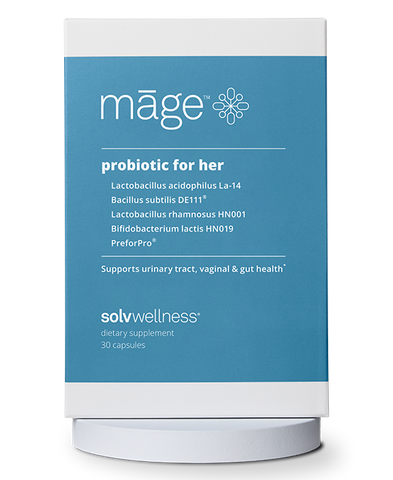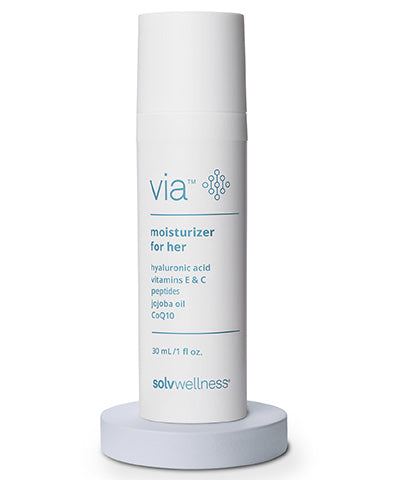Here’s the truth: sex after menopause doesn’t have to be all doom and gloom. In fact, for many women, it’s an opportunity for deeper connection, greater creativity, and yes, more pleasure. I’ve seen women in their 60s rediscover intimacy they never had in their 30s, and couples who feel freer and more adventurous once the fear of pregnancy and monthly cycles are no longer in the mix.
Menopause changes your hormones, your body, and sometimes your relationship to sex. But change doesn’t mean decline. With the right strategies, this chapter can become one of the most exciting of your intimate life. It’s about shifting perspective, embracing new tools, and leaning into curiosity instead of fear.
- Estrogen shifts: Less estrogen can mean thinner, less elastic vaginal tissue, leading to disruptive symptoms like vaginal dryness during menopause. But with the right support, comfort and pleasure can return quickly.
- Blood flow slows down: Arousal may take longer, but it also gives you permission to lean into foreplay and savor the experience.
- Pelvic floor weakens: Muscle tone loss can impact sensation, but pelvic floor therapy during menopause can strengthen muscle and also lead to more powerful orgasms than you’ve had in years.
- Changes in desire: Menopause can bring shifts in how and when you feel desire. That doesn’t mean desire is gone—it may just show up differently.
These changes are real, but they’re also manageable—and sometimes even an invitation to approach intimacy in fresh ways.
For dryness and discomfort, local vaginal estrogen remains the gold standard. It restores tissue health, lubrication, and comfort within weeks. Pair it with a high-quality vaginal moisturizer for best results. Think of vaginal estrogen as restoring the foundation, and moisturizers as daily upkeep.
What often surprises women is how much this impacts overall confidence. When intimacy stops being uncomfortable, it opens the door to curiosity, spontaneity, and play. I’ve seen couples go from avoiding sex entirely to rediscovering joy together within just a few months of consistent use.
Using lube is not a sign of failure—it’s a sign of wisdom. Your body’s natural lubrication changes, but your pleasure doesn’t have to. Try:
- Silicone-based: Long lasting, great for marathon sessions or shower play.
- Hybrid: Combines the silkiness of silicone with the lightness of water-based.
- Surprising hack: Keep different types on your nightstand. A lightweight water-based lube for quickies, silicone for longer play.
Skip anything with numbing agents, parabens, or glitter (yes, it exists). Comfort is sexy. And here’s a behavioral twist: applying lubricant together can become part of foreplay. Slowing down, touching intentionally, and framing it as elevating intimacy (instead of a medical intervention) makes all the difference.
Yes, Kegels matter, but they’re only part of the picture. Strong pelvic floor muscles improve arousal and orgasm intensity. But here’s a surprising twist: relaxation is just as important. Too-tight muscles can cause pain. Alternating squeezes with full relaxation, or even incorporating breathwork, can make sex more pleasurable.
Pelvic floor therapists can help by showing you how to do Kegels correctly or by integrating fun tools like biofeedback or even vaginal wands. Think of it as endurance training for your sex life. And remember, movement itself can be sexy. Consider dancing, yoga, or Pilates not just as workouts, but as body awareness practices that translate directly to the bedroom.
Many women discover that their desire is more responsive, popping up after physical arousal, not before. Instead of waiting for fireworks to magically appear, start with touch, kissing, or massage and let your body catch up.
Even better, expand your definition of sex. Pleasure doesn’t begin and end with penetration. Oral sex, sensual massage, mutual touch, toys, or just a make-out session that lasts longer than two minutes can be deeply satisfying. When the pressure is off, intimacy often becomes more creative and fun.
A practical exercise: schedule a “pleasure date” that isn’t about intercourse at all. Focus on touch, exploration, or simply lying together without pressure. Many couples report that this shift actually reignites desire by removing anxiety.
Here’s a tip that surprises many women: vibrators aren’t just for people with problems. They’re pleasure tools, and they can amplify sensation when arousal takes longer. Some of the best vibrators for menopausal women range from discreet bullet vibes to hands-free couples’ toys. Some even combine suction and vibration for clitoral stimulation that bypasses the need for prolonged arousal.
Adding toys can also take the pressure off partners. It’s not about replacing intimacy, it’s about adding more ways to play. If you’ve never shopped for one, consider it part of the fun. Many women describe their first visit to a sex-positive boutique as liberating.
And don’t forget: toys aren’t only for solo play. Using them together can create intimacy, laughter, and shared novelty.
Opening up about sex after menopause can be difficult for some, but open sexual communication is one of the strongest predictors of satisfaction. That means talking about what feels good, what doesn’t, and what you’d like to try. But here’s the twist: humor helps. If something awkward happens, a vibrator dies mid-session, or lube ends up on the sheets, laughing together can make intimacy more fun and less pressured.
Practical communication tip: instead of asking “Do you like this?” try “Do you want more of this, less of this, or something different?” It gives your partner clear guidance without making the conversation feel like a pop quiz.
And if talking out loud feels intimidating, try writing each other notes or using a shared journal to describe fantasies or preferences. The anticipation that builds from this kind of exchange can be as arousing as the act itself.
Great sex doesn’t start when you turn off the lights; it starts with how you connect during the day. Flirty texts, holding hands, sharing a secret, cooking together—all of these build erotic charge. Emotional intimacy feeds physical intimacy.
Behavioral shifts like scheduling intimacy dates, experimenting with erotic media, or practicing mindfulness together can rewire desire. Small rituals matter too: lighting candles, creating a playlist, or even just locking the bedroom door for a sense of privacy.
And here’s a surprising one: novelty outside the bedroom often translates into spark inside it. Trying a new activity, traveling somewhere unfamiliar, or even learning something new together stimulates dopamine, the same brain chemical that fuels sexual excitement.
We’ve extended lifespan and healthspan. Now it’s time to extend sexspan, the years of satisfying sexual connection. Sexual health is not a luxury; it’s part of your overall well-being. In the same way we think about heart health or bone health as markers of longevity, sexual vitality is a powerful indicator of how well your body and mind are functioning. Healthy blood flow, balanced hormones, and nervous system resilience are all reflected in your ability to experience desire, arousal, and orgasm. When sex feels good, it’s often a sign that your body is in balance.
Sexspan is also about more than the physical. Emotional intimacy, body confidence, curiosity, and a willingness to try new things all add to your long-term vitality. Just as you invest in fitness or nutrition, investing in pleasure, whether through better communication, vibrators, new routines, or nurturing self-confidence, pays dividends in overall quality of life.
Think of sexspan as a holistic measure of longevity. It blends biology with psychology and relationship health. It’s not about chasing the sex life you had in your 20s, but about cultivating a sex life that reflects the wisdom, self-awareness, and confidence you’ve gained with age. That might mean finding new ways to connect with your partner, rediscovering your own body through solo exploration, or simply reframing intimacy as something to be curious about rather than anxious over. For many women, this shift leads not only to better sex but also to stronger relationships, improved mood, and a deeper sense of agency.
Your emotional and physical intimacy after menopause matters. And when you make space for sexual vitality as part of your broader health plan, you’re not just adding years to your life—you’re adding life to your years.
Looking for more insights on navigating menopause? Be sure to check out our series for other tips, advice, and science-backed information to support your health and wellness by exploring Menopause Made Clear.










